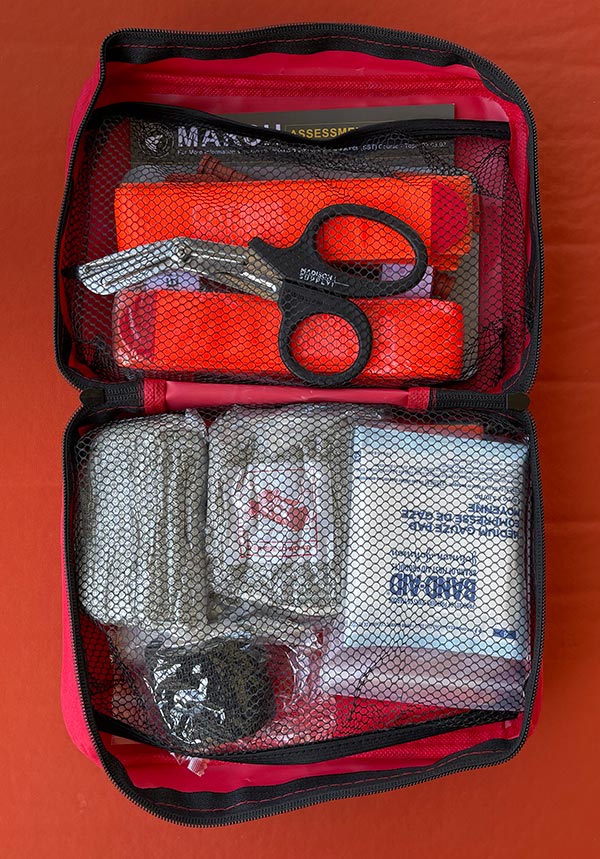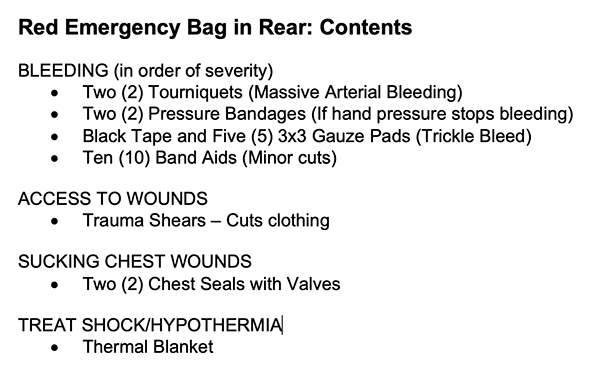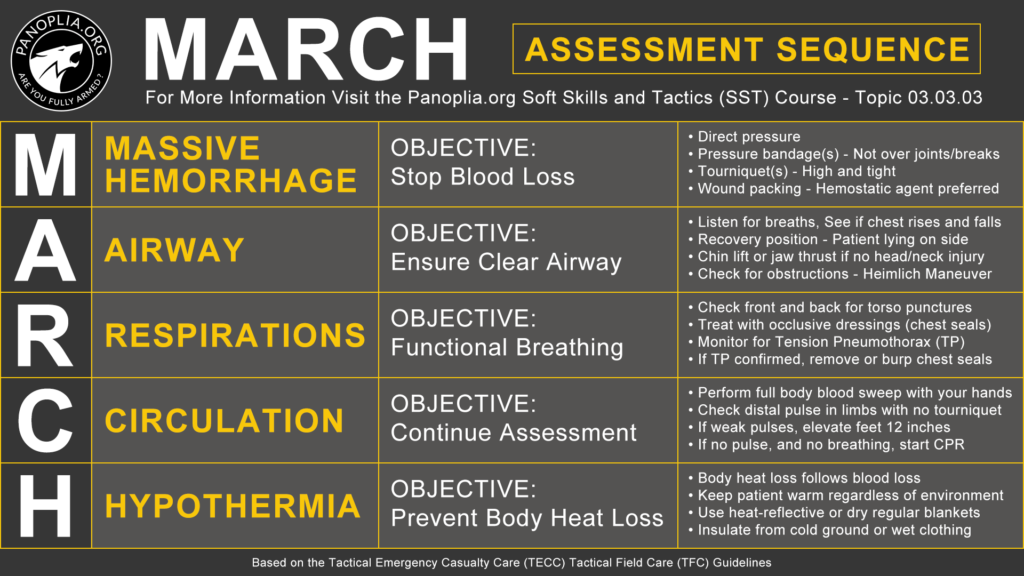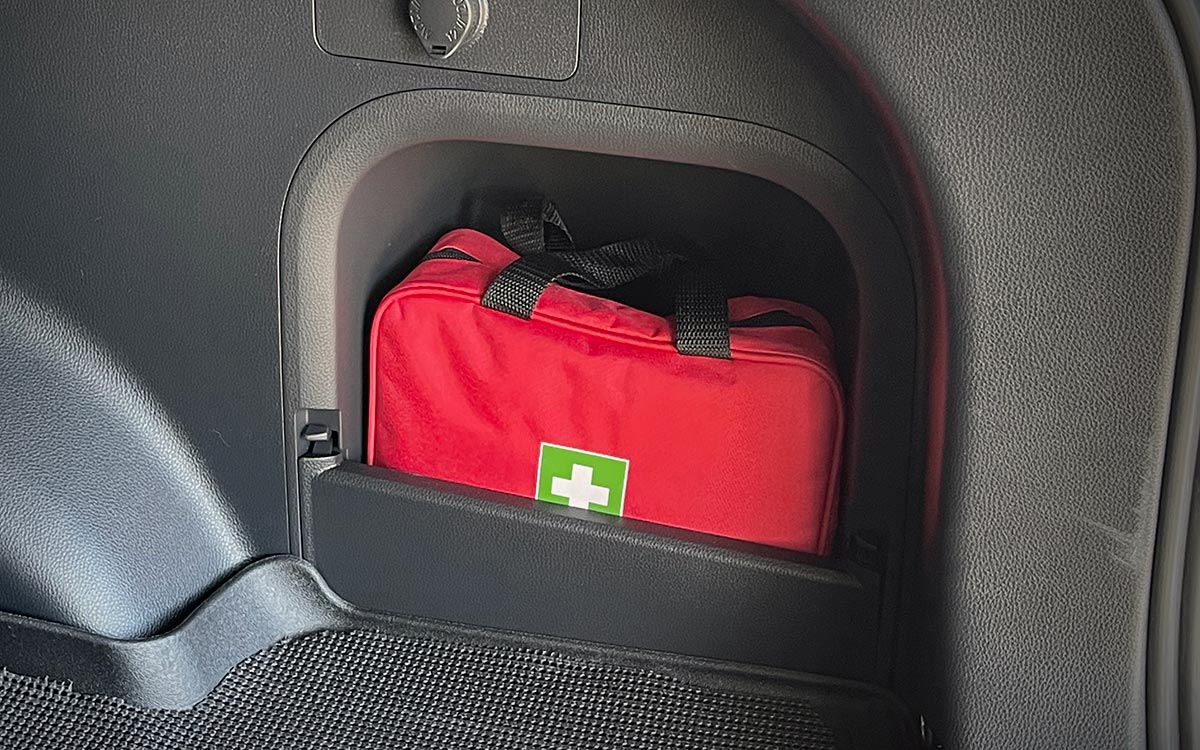Last July we replaced our twenty-year-old Honda Pilot with a new RAV4 Hybrid. As I began planning for the loadout we would carry in the new vehicle, I noticed a small storage area just inside the liftgate. Nothing practical seemed to fit in this tight, oddly-spaced opening.
As I stared at this space, I started thinking that it might be a perfect place for a slightly expanded Individual First Aid Kit (IFAK) to supplement the one we carry in the front of our vehicle for quick access. After taking a few quick measurements, I found an empty medical bag on Amazon that fits perfectly into this space as the image above demonstrates.
Our son and his wife recently purchased the same vehicle as ours. We all love the RAV4, especially that it gets 40-42 miles per gallon. As I looked at our son’s new RAV4, I noticed the same empty space. With this in mind, I ordered another empty medical bag and filled it with the same items we have in our bag. Below is an image of the open bag and the laminated list I included within it.


Those trained in Tactical Combat Casualty Care (TCCC) or Tactical Emergency Casualty Care (TECC) will realize that the above list is intended to be used by those with no emergency medical training. For individuals like our son who have been trained, we also included the Panoplia “MARCH Card” as shown below.

With the realization that our son’s wife has not yet been trained in TCCC/TECC, we decided to have them over for dinner tonight. After dinner we will walk through the MARCH Assessment Sequence and practice using all the items found within the medical bag we set up for them.
Many of us who operate in high-risk roles have received TCCC/TECC training on numerous occasions. The MARCH Assessment Sequence is likely almost automatic for us. And yet, how many of us have taken the time to train those we love in the same skills and knowledge? After all, the chances of one being involved in an automobile accident in the United States are likely greater than our having to use our IFAKs overseas.
If you’d like a refresher on the TECC protocols, or if you’d like a way to walk those you love through the training, please see Section 03.03.03 of the Panoplia.org online Soft Skills and Tactics (SST) course.
We highly recommend that you consider setting up at least one IFAK for each vehicle driven by your family members, and that you walk them through how and when to use the life-saving resources it contains. Lord willing none of us or those we love will ever have to break open and use an IFAK, yet if they do, let’s ensure that they or those whom they assist have the very best chance of survival.




0 Comments